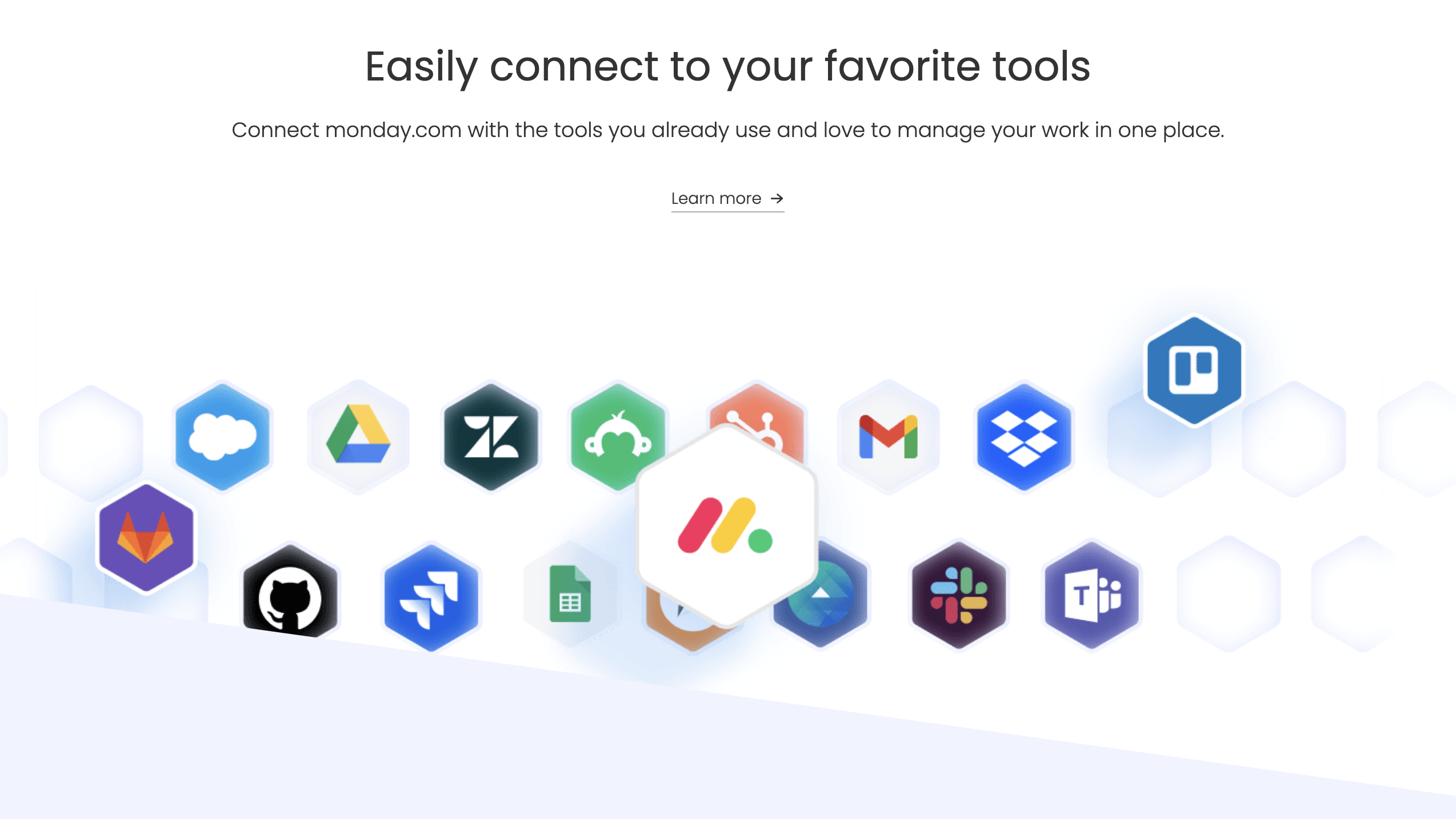5 things to consider when integrating CRM into existing business software systems
Integration is one of the most important considerations for CRMs

Sign up for breaking news, reviews, opinion, top tech deals, and more.
You are now subscribed
Your newsletter sign-up was successful
Reader Offer: Save 18% on Monday.com annual memberships
Monday.com is an easy-to-use and customizable work management platform, enabling teams of all sizes to plan, manage and centralize work. Get started now and boost your team's communication and productivity.
Preferred partner (What does this mean?)
5 CRM integration considerations to keep in mind
1. Email integration
Even with the massive digital transformations that have taken place within many businesses (and continue at great pace), there remains a place for the humble email account. Email remains the primary way that colleagues interact with each other and there’s also email marketing to consider. With the rise of hybrid working, the importance of email may have even increased of late.
The ongoing importance of email is reflected in how crucial email integration is for many CRM platforms. The best CRM tools understand this and offer intuitive, secure email integrations. Take Salesforce, for example, which can be integrated with its own Marketing Cloud platform for email automation, or Insightly, which can draw communications from Mailchimp, Microsoft Outlook, and other programs.
By offering close email integration, a CRM can help centralize all your client communication into a single repository. It should mean that messages don’t get missed, you can capitalize on potential sales opportunities, and deliver a better all-around customer experience.
2. Social media integration
Social media is about much more than just wasting time on Facebook while the boss isn’t looking. Today, social networks are recognized as playing an important role in sales, marketing, customer service, and many other aspects of modern business. There are even social media management tools to help firms keep tabs on the content they are sharing on social networks and their customer interactions.
For instance, Zoho CRM boasts social media lead generation, while Insightly contact sheets can integrate with your social media posts to boost efficiency. Whichever channel your customers mainly use, leverage social listening for improved interactions by capturing customer data from channels like Facebook, LinkedIn, Twitter, or any other platform, CRM tools can turn your social media engagements into concrete leads. This is bound to be welcomed by your sales teams, who will be able to leverage social media content in their calls.
3. Document management integration
Documents are another old-fashioned aspect of the business world that is being brought into the 21 century by CRM software. Many CRM tools integrate with document management to streamline your workflows. Information from your CRM can be automatically inserted into the relevant documents, meaning that CRM tools have a role to play in the automation trend that is sweeping across the business world.
For a while, it seemed as though document management was only going to get more and more difficult as the sheer number of different business functions and customer channels increased. However, the way that CRM tools can harvest and collate information automatically means that document creation can be streamlined - no matter how many your company uses.
Sign up to the TechRadar Pro newsletter to get all the top news, opinion, features and guidance your business needs to succeed!
Some CRM tools can also make the signing of important documents more straightforward. Freshsales, for example, is designed to integrate with solutions like DocuSign, as well as allow you to scan documents using your phone’s camera. It means that physical documents are no longer a stressful addition to the business environment.
4. Analytics integration
Data is fundamental to unlocking new insights, but there is so much of it that businesses can find it all a little overwhelming. Analytics tools are essential for making sense of the data deluge, but they also represent yet another business tool that you need to download and manage. Well, fortunately, many CRM tools mean that they don’t feel like a separate tool at all thanks to close integration.
For instance, Salesforce Sales Cloud can be integrated with Einstein Analytics for AI-powered business intelligence - the kind that will see your sales team discover new leads that they might have glossed over previously. CRMs are a treasure trove of data and by connecting them with analytics tools, businesses can turn that data into insights. Regardless of what channels you use most to connect with customers, CRM tools and analytics software together can turn connections into conversions.
5. Communication integration

Business processes rely on communication - both internally and externally. The best CRM solutions recognize this and integrate closely with your communication tools - whether you like to message via email, Slack, or anything else.
The growing importance of video conferencing tools is another form of communication that is now key in many workplaces. For instance, Bitrix24 is just one of several CRM tools that let you make video calls from within its native mobile app.
CRM’s aim to improve efficiencies across the board at your company and this is certainly the case with communication. Often, internal emails can be sent automatically and managers can easily assign tasks based on CRM data. It’s all about streamlining the connections that are the bedrock of good business - both internal and external.
Barclay has been writing about technology for a decade, starting out as a freelancer with ITProPortal covering everything from London’s start-up scene to comparisons of the best cloud storage services. After that, he spent some time as the managing editor of an online outlet focusing on cloud computing, furthering his interest in virtualization, Big Data, and the Internet of Things.





